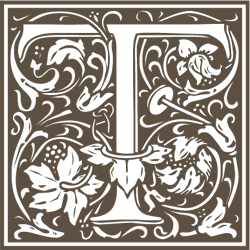I’ve had an interest for the past several years in spirituality, meditation, myth, and psychology. I believe this is the most important body of ideas in the western world which are floating around in the air, yet not digested by the average person.
Jung says basically that we have pre-programmed ideas in the mind that are as real as your arm or leg. He calls them archetypes: mother, the stranger, the trickster.
Just think about it—every mammal (at the least) must have an idea in its mind of “mother.” It’s like the hardware of the mind. When the mind “boots up” into consciousness, it has both hardware and software. The software elements of the mind are those that are changeable after birth, the “nurture” part of psychology. The hardware elements are those that are built in from birth: not just head, arms, and legs, but also certain fundamental ideas: mother, the stranger, the trickster. Jung’s name “collective unconscious” is somewhat misleading, I find. Instead I would name it: “shared foundations of mind.”
I find this fascinating: nature vs. nurture sounds banal, self-evident, and is something I’ve known since I was a teenager. But the idea that there are ideas in your mind that are genetically inherited: this is very interesting.
And so Joseph Campbell was a follower of Jung in that, he recognized that mythology is an expression of genetically embedded stories in our shared mind. He found the same story, what he calls the monomyth, told over and over again in myth. He called this story “the hero’s journey.” The story of the birth, growth, challenge, triumph, success, and death of heroes, the “dying god” is everywhere in our culture: Jesus, every children’s movie, and so on. I had never thought these thoughts before and I found, once exposed to them, they were self-evident, very meaningful, helpful, and comforting.
THE HERO WITH A THOUSAND FACES is a very challenging book. It is one you could read over and over again. Campbell’s erudition is overwhelming. The subject is deep to the point of being scary, in the way that a really good spiritual book makes you wonder about making profound changes to your self and your life. It might force you to grow to the point where it would take a lot of energy and be painful.
Personally, why do I find Campbell so meaningful?
I have always struggled with religious questions. I have always been very curious and wondering, and always had existential pain: what is it all about? Where do we come from and, what’s the point of it all?
I was exposed to Christianity from a very young age, I read heavily and, good authors like C.S. Lewis. I had an intense conversion experience when I was about 15 and, this grew till I was 20. I really dug into Christianity but, as time went by I found that, it was making life harder for me. Fervently trying to fit the world into Christianity caused an immense strain and, in some ways it negatively affected my relationships with others. I found that Christianity was not providing acceptable answers to my questions.
The work of Jung & Campbell is the point where the modern, secular western world is wrestling with the questions of life, death, and existence. The western world is just like me: traditional religions are not providing meaningful answers any more. But, that doesn’t we should give up wondering: we need to keep struggling. That’s what Jung and Campbell are doing and they are pointing the way for others to follow: people like me.
References: * interview with Joseph Campbell.
Link to review on Goodreads and Amazon.
